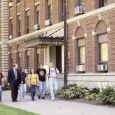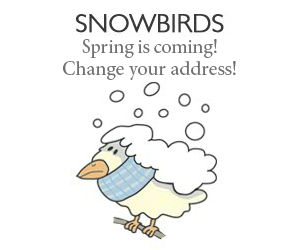The Gift of South Dakota
Subscriptions to South Dakota Magazine make great gifts!
Subscribe today — 1 year (6 issues) is just $29!
Native American Foster Care in South Dakota: The Questions That Matter
Nov 2, 2011
Last week National Public Radio broadcast a three-part investigative report criticizing South Dakota's foster care system. Journalists Laura Sullivan and Amy Walters report these numbers:
- Each year, we South Dakotans take about 700 Native American children from their homes.
- Native American children make up 13% of our child population.
- Native American children make up 53% of the kids taken into our foster care system.
- A large majority of South Dakota's Native American foster kids are placed with non-Native families, in apparent contravention of the Indian Child Welfare Act, which restricts such non-Native placement of Native children to exceptional circumstances.
- Eleven out of 183 state case workers are Native American.
What do these numbers tell us?
Do these numbers result from our individual and institutional racism? No decent human enjoys separating children from their parents. But maybe it's easier for social workers and judges to carry out such a terrible action when the children and parents are others.
Do those numbers speak to a reservation reality beyond racism? Maybe more Native kids end up in foster care because more Native kids grow up in households disrupted by poverty, alcoholism, and violence. Maybe Native American culture is so broken that it can't produce enough social workers, foster parents, or functional families to take care of its own children. But if that's the case, don't we end up looking in the mirror again at the racism with which we invaders broke that culture? And if we broke it, don't we have to fix it?
The NPR report raises many questions. None are more important than these:
- Why aren't those Native children with their families?
- Can we put those Native families back together?
- How do we keep more Native families from falling apart?
Neither Left, Right, nor Center can provide easy answers to those questions. But we may find a partial answer in one other number from the NPR report: each year South Dakota gets nearly a hundred million dollars from Uncle Sam for foster care. That money boosts the South Dakota economy. If half the kids in the system drawing that helpful money are Native Americans, shouldn't we find a way to pump half of that money back into the Native economy?
Money won't fix centuries of cultural warfare, but it could help more Native foster parents provide kids in need with food, clothes, and love in their own communities.
Cory Allen Heidelberger writes the Madville Times political blog. He grew up on the shores of Lake Herman. He studied math and history at SDSU and information systems at DSU, and is currently teaching French at Spearfish High School. A longtime country dweller, Cory is enjoying "urban" living with his family in Spearfish.









Comments
I've heard a lot of talk about this issue since the stories broke. A lot of people think the kids are better off away from the poverty of the rez -- but I don't think many of them would think it would be better to take a poor Norwegian kid away from a suffering small town and send him off to some urban center on the coast ... away from culture, family and all familiarity.
If nothing else the NPR stories certainly have people talking and thinking.
Too many in South Dakota, beginning with the Governor, have retreated into defensiveness and xenophobia. Thank you for zeroing in on the heart of the problem: How South Dakota DSS treats Native American families and the harm that does to the children.
There is much more about this on my organization’s Child Welfare Blog here: http://is.gd/AJ8Plu
Richard Wexler
Executive Director
National Coalition for Child Protection Reform
www.nccpr.org
It is a necessary thing that we should be reminded of our responsibility. NPR has done us that service. Until someone can figure out what will really help, we will keep seeing these stories over and over.